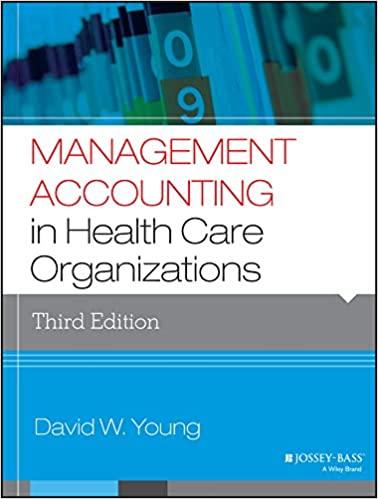


Estimating Future Retirement Needs Alex and Jesse have gathered the following information for you. They know that you are completing a personal finance course and that you understand how to complete a Projecting Retirement Income and Investment Needs worksheet. You will need the following data: Alex will have worked at Toyota for his entire career and will have an annual pension amount of $15,625. . Both Alex and Jesse are 30 years old and plan to retire when they reach age 65. Their estimated level of annual current household expenditures is $60,000.00. They estimate that they will need 80% in retirement. They will receive $1,556 per month of Social Security income and no other sources of income (except pension). Jesse will have worked at Microsoft for her entire career and will have an annual pension amount of $12,500. Based on their Internet research, they will use 6% as the average annual inflation rate for retirement calculations. They talked with friends and believe that 8% is a realistic rate of. return on their investments once they retire. After contacting their savings and loan, they found out a savings account is currently paying 5%. Complete the worksheet provided. Note: 1) Every field must have a value (if your answer is zero, type "0"); 2) some values are repeated; and 3) round to two decimals places, Complete the worksheet provided. Note: 1) Every field must have a value (if your answer is zero, type "0"); 2) some values are repeated; and 3) round to two decimals places. Projecting Retirement Income and Investment Needs Name(s): Alex and Jesse Date: May 2015 to I. Estimated Household Expenditures in Retirement A. Approximate number of years to retirement B. Current level of annual household expenditures, excluding savings c. Estimated household expenses in retirement as a percentage of current expenses D. Estimated annual household expenditures in retirement (B x C) II. Estimated Income in Retirement E. Social Security, annual income F. Company/employer pension plans, annual amounts G. Other sources, annual amounts H. Total annual income (E + F + G) I. Additional required income, or annual shortfall (D-H) III. Inflation Factor 1. Expected average annual inflation rate over the period to retirement to to to to to % $ K. Inflation factor (a) Years to retirement (A) (b) Average annual inflation rate (J) L. Size of inflation-adjusted annual shortfall IV. Funding the Shortfall M. Anticipated return on assets held after retirement N. Amount of retirement fund required (your nest egg) Expected rate of return on investments prior to retirement P. Compound interest factor (a) Years to retirement (A) (b) Expected rate of return on investments prior to retirement (0) Q. Annual savings required to fund retirement nest egg (N:P) O. Fyne ou can use the following dropdown menu to identify the necessary future value interest factors. Future Value Interest Factors Estimating Future Retirement Needs Alex and Jesse have gathered the following information for you. They know that you are completing a personal finance course and that you understand how to complete a Projecting Retirement Income and Investment Needs worksheet. You will need the following data: Alex will have worked at Toyota for his entire career and will have an annual pension amount of $15,625. . Both Alex and Jesse are 30 years old and plan to retire when they reach age 65. Their estimated level of annual current household expenditures is $60,000.00. They estimate that they will need 80% in retirement. They will receive $1,556 per month of Social Security income and no other sources of income (except pension). Jesse will have worked at Microsoft for her entire career and will have an annual pension amount of $12,500. Based on their Internet research, they will use 6% as the average annual inflation rate for retirement calculations. They talked with friends and believe that 8% is a realistic rate of. return on their investments once they retire. After contacting their savings and loan, they found out a savings account is currently paying 5%. Complete the worksheet provided. Note: 1) Every field must have a value (if your answer is zero, type "0"); 2) some values are repeated; and 3) round to two decimals places, Complete the worksheet provided. Note: 1) Every field must have a value (if your answer is zero, type "0"); 2) some values are repeated; and 3) round to two decimals places. Projecting Retirement Income and Investment Needs Name(s): Alex and Jesse Date: May 2015 to I. Estimated Household Expenditures in Retirement A. Approximate number of years to retirement B. Current level of annual household expenditures, excluding savings c. Estimated household expenses in retirement as a percentage of current expenses D. Estimated annual household expenditures in retirement (B x C) II. Estimated Income in Retirement E. Social Security, annual income F. Company/employer pension plans, annual amounts G. Other sources, annual amounts H. Total annual income (E + F + G) I. Additional required income, or annual shortfall (D-H) III. Inflation Factor 1. Expected average annual inflation rate over the period to retirement to to to to to % $ K. Inflation factor (a) Years to retirement (A) (b) Average annual inflation rate (J) L. Size of inflation-adjusted annual shortfall IV. Funding the Shortfall M. Anticipated return on assets held after retirement N. Amount of retirement fund required (your nest egg) Expected rate of return on investments prior to retirement P. Compound interest factor (a) Years to retirement (A) (b) Expected rate of return on investments prior to retirement (0) Q. Annual savings required to fund retirement nest egg (N:P) O. Fyne ou can use the following dropdown menu to identify the necessary future value interest factors. Future Value Interest Factors









